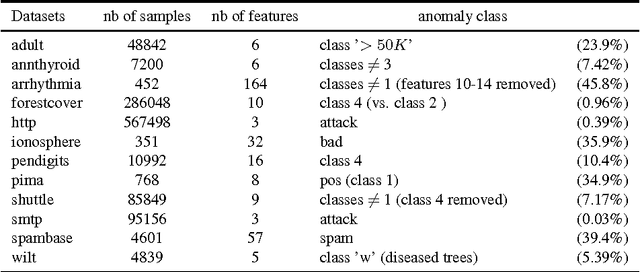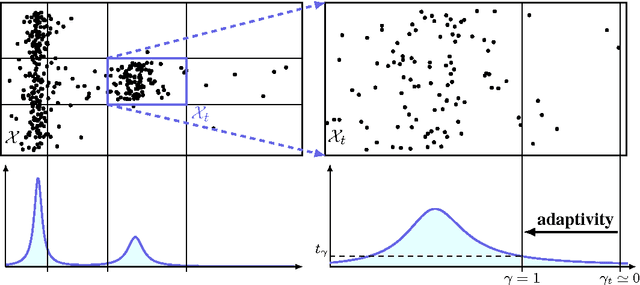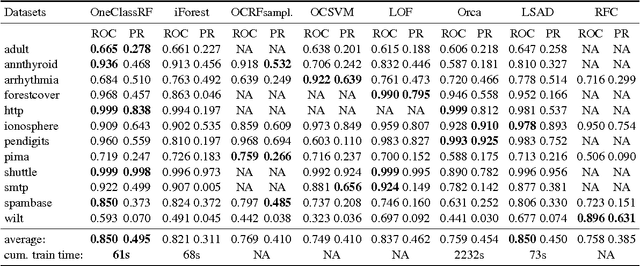Nicolas Drougard
ISAE
A High-Accuracy SSIM-based Scoring System for Coin Die Link Identification
Feb 03, 2025



Abstract:The analyses of ancient coins, and especially the identification of those struck with the same die, provides invaluable information for archaeologists and historians. Nowadays, these die links are identified manually, which makes the process laborious, if not impossible when big treasures are discovered as the number of comparisons is too large. This study introduces advances that promise to streamline and enhance archaeological coin analysis. Our contributions include: 1) First publicly accessible labeled dataset of coin pictures (329 images) for die link detection, facilitating method benchmarking; 2) Novel SSIM-based scoring method for rapid and accurate discrimination of coin pairs, outperforming current techniques used in this research field; 3) Evaluation of clustering techniques using our score, demonstrating near-perfect die link identification. We provide datasets, to foster future research and the development of even more powerful tools for archaeology, and more particularly for numismatics.
Offline Risk-sensitive RL with Partial Observability to Enhance Performance in Human-Robot Teaming
Feb 08, 2024



Abstract:The integration of physiological computing into mixed-initiative human-robot interaction systems offers valuable advantages in autonomous task allocation by incorporating real-time features as human state observations into the decision-making system. This approach may alleviate the cognitive load on human operators by intelligently allocating mission tasks between agents. Nevertheless, accommodating a diverse pool of human participants with varying physiological and behavioral measurements presents a substantial challenge. To address this, resorting to a probabilistic framework becomes necessary, given the inherent uncertainty and partial observability on the human's state. Recent research suggests to learn a Partially Observable Markov Decision Process (POMDP) model from a data set of previously collected experiences that can be solved using Offline Reinforcement Learning (ORL) methods. In the present work, we not only highlight the potential of partially observable representations and physiological measurements to improve human operator state estimation and performance, but also enhance the overall mission effectiveness of a human-robot team. Importantly, as the fixed data set may not contain enough information to fully represent complex stochastic processes, we propose a method to incorporate model uncertainty, thus enabling risk-sensitive sequential decision-making. Experiments were conducted with a group of twenty-six human participants within a simulated robot teleoperation environment, yielding empirical evidence of the method's efficacy. The obtained adaptive task allocation policy led to statistically significant higher scores than the one that was used to collect the data set, allowing for generalization across diverse participants also taking into account risk-sensitive metrics.
Exploiting Expert-guided Symmetry Detection in Markov Decision Processes
Dec 18, 2021



Abstract:Offline estimation of the dynamical model of a Markov Decision Process (MDP) is a non-trivial task that greatly depends on the data available to the learning phase. Sometimes the dynamics of the model is invariant with respect to some transformations of the current state and action. Recent works showed that an expert-guided pipeline relying on Density Estimation methods as Deep Neural Network based Normalizing Flows effectively detects this structure in deterministic environments, both categorical and continuous-valued. The acquired knowledge can be exploited to augment the original data set, leading eventually to a reduction in the distributional shift between the true and the learnt model. In this work we extend the paradigm to also tackle non deterministic MDPs, in particular 1) we propose a detection threshold in categorical environments based on statistical distances, 2) we introduce a benchmark of the distributional shift in continuous environments based on the Wilcoxon signed-rank statistical test and 3) we show that the former results lead to a performance improvement when solving the learnt MDP and then applying the optimal policy in the real environment.
Expert-Guided Symmetry Detection in Markov Decision Processes
Nov 19, 2021



Abstract:Learning a Markov Decision Process (MDP) from a fixed batch of trajectories is a non-trivial task whose outcome's quality depends on both the amount and the diversity of the sampled regions of the state-action space. Yet, many MDPs are endowed with invariant reward and transition functions with respect to some transformations of the current state and action. Being able to detect and exploit these structures could benefit not only the learning of the MDP but also the computation of its subsequent optimal control policy. In this work we propose a paradigm, based on Density Estimation methods, that aims to detect the presence of some already supposed transformations of the state-action space for which the MDP dynamics is invariant. We tested the proposed approach in a discrete toroidal grid environment and in two notorious environments of OpenAI's Gym Learning Suite. The results demonstrate that the model distributional shift is reduced when the dataset is augmented with the data obtained by using the detected symmetries, allowing for a more thorough and data-efficient learning of the transition functions.
Exploitation vs Caution: Risk-sensitive Policies for Offline Learning
May 27, 2021



Abstract:Offline model learning for planning is a branch of machine learning that trains agents to perform actions in an unknown environment using a fixed batch of previously collected experiences. The limited size of the data set hinders the estimate of the Value function of the relative Markov Decision Process (MDP), bounding the performance of the obtained policy in the real world. In this context, recent works showed that planning with a discount factor lower than the one used during the evaluation phase yields more performing policies. However, the optimal discount factor is finally chosen by cross-validation. Our aim is to show that looking for a sub-optimal solution of a Bayesian MDP might lead to better performances with respect to the current baselines that work in the offline setting. Hence, we propose Exploitation vs Caution (EvC), an algorithm that automatically selects the policy that solves a Risk-sensitive Bayesian MDP in a set of policies obtained by solving several MDPs characterized by different discount factors and transition dynamics. On one hand, the Bayesian formalism elegantly includes model uncertainty and on another hand the introduction of a risk-sensitive utility function guarantees robustness. We evaluated the proposed approach in different discrete simple environments offering a fair variety of MDP classes. We also compared the obtained results with state-of-the-art offline learning for planning baselines such as MOPO and MOReL. In the tested scenarios EvC is more robust than the said approaches suggesting that sub-optimally solving an Offline Risk-sensitive Bayesian MDP (ORBMDP) could define a sound framework for planning under model uncertainty.
Offline Learning for Planning: A Summary
Oct 05, 2020

Abstract:The training of autonomous agents often requires expensive and unsafe trial-and-error interactions with the environment. Nowadays several data sets containing recorded experiences of intelligent agents performing various tasks, spanning from the control of unmanned vehicles to human-robot interaction and medical applications are accessible on the internet. With the intention of limiting the costs of the learning procedure it is convenient to exploit the information that is already available rather than collecting new data. Nevertheless, the incapability to augment the batch can lead the autonomous agents to develop far from optimal behaviours when the sampled experiences do not allow for a good estimate of the true distribution of the environment. Offline learning is the area of machine learning concerned with efficiently obtaining an optimal policy with a batch of previously collected experiences without further interaction with the environment. In this paper we adumbrate the ideas motivating the development of the state-of-the-art offline learning baselines. The listed methods consist in the introduction of epistemic uncertainty dependent constraints during the classical resolution of a Markov Decision Process, with and without function approximators, that aims to alleviate the bad effects of the distributional mismatch between the available samples and real world. We provide comments on the practical utility of the theoretical bounds that justify the application of these algorithms and suggest the utilization of Generative Adversarial Networks to estimate the distributional shift that affects all of the proposed model-free and model-based approaches.
One Class Splitting Criteria for Random Forests
Nov 21, 2016



Abstract:Random Forests (RFs) are strong machine learning tools for classification and regression. However, they remain supervised algorithms, and no extension of RFs to the one-class setting has been proposed, except for techniques based on second-class sampling. This work fills this gap by proposing a natural methodology to extend standard splitting criteria to the one-class setting, structurally generalizing RFs to one-class classification. An extensive benchmark of seven state-of-the-art anomaly detection algorithms is also presented. This empirically demonstrates the relevance of our approach.
Qualitative Possibilistic Mixed-Observable MDPs
Sep 26, 2013


Abstract:Possibilistic and qualitative POMDPs (pi-POMDPs) are counterparts of POMDPs used to model situations where the agent's initial belief or observation probabilities are imprecise due to lack of past experiences or insufficient data collection. However, like probabilistic POMDPs, optimally solving pi-POMDPs is intractable: the finite belief state space exponentially grows with the number of system's states. In this paper, a possibilistic version of Mixed-Observable MDPs is presented to get around this issue: the complexity of solving pi-POMDPs, some state variables of which are fully observable, can be then dramatically reduced. A value iteration algorithm for this new formulation under infinite horizon is next proposed and the optimality of the returned policy (for a specified criterion) is shown assuming the existence of a "stay" action in some goal states. Experimental work finally shows that this possibilistic model outperforms probabilistic POMDPs commonly used in robotics, for a target recognition problem where the agent's observations are imprecise.
 Add to Chrome
Add to Chrome Add to Firefox
Add to Firefox Add to Edge
Add to Edge